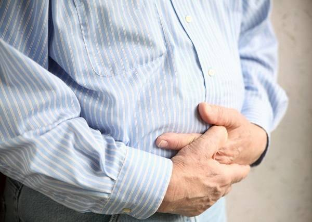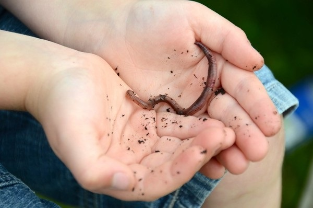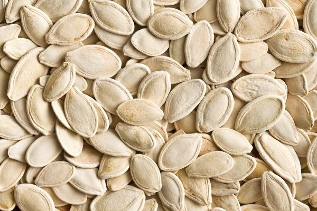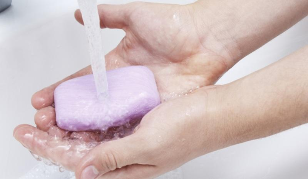
Parasitic diseases are widespread among the population, many people encounter them at least once in their lives, it is almost impossible to fully insure against their appearance. However, many of them lead to other more serious diseases. Parasites are capable of causing disturbances in the work of various organs, they often begin to treat the consequences of a parasitic infection, the main problem becomes clear much later.
Parasites can attack any organ system, they can be in the intestines, in the liver, live on the skin, some can even reach the brain. The main thing is to identify the lesion at an early stage, when it does not affect various organs and does not become extensive, then it will be much easier to get rid of parasites.
Types of parasites
There are a large number of parasites that infect various organs. These are not just worms that mainly live in the intestines and other worms. The parasites of the human body can be of other types. All of them can be divided into several groups:
- worms (roundworms, worms, pinworms, echinococci and others);
- protozoan parasites (lamblia, intestinal Trichomonas, chlamydia, toxoplasma);
- fungal parasites (candida);
- bacteria (Staphylococcus aureus, Streptococcus aureus);
- viruses (flu, herpes, smallpox, rotavirus and others).
However, worms are most often associated with the word "parasites". Their manifestations and treatment tactics are usually very similar.
Symptoms
The symptoms of parasite infestation are often reminiscent of other diseases, so when they are detected, it is important to make a comprehensive diagnosis, which will show whether a person is sick from the parasites or should look for another cause. The main symptoms of parasitic diseases are the following:
- Diarrhea. It comes from the waste products of certain types of parasites.
- Constipation. Some worms, as they grow, block the passage of the intestines, which can even cause intestinal obstruction. Parasites can also cause jaundice by blocking the bile ducts.
- Constant swelling. Gas production often occurs when infected with worms.
- Pain in muscles and joints. Similar to arthritis pain. They develop during the migration of parasites in the body.
- Allergic reactions. Parasites are strong irritants and they themselves and their waste products can cause allergies. In addition, they cause damage to the intestinal tissue, forcing the immune system to work more actively and respond to this irritation with allergic reactions.
- Various skin lesions: rashes, acne, dermatitis and other skin diseases. Papillomas are also a sign of parasitic infection.
- Iron deficiency anemia.

Weight jumps can also be a symptom. A person can lose or gain weight dramatically. Weight loss can be associated with poor appetite, digestive disorders. A strong increase in mass is generally associated with a drop in blood sugar levels, the patient begins to feel constant hunger.
Negative nervous system symptoms. The activity of parasites literally poisons the body, which can cause disturbances in the functioning of the nervous system. These include severe anxiety in general, increased anxiety, and mild depression.
Other things to keep in mind:
- The gnashing of teeth in me is bruxism. This is the nervous system's reaction to the presence of an irritant in the body.
- Sleep disturbances. Sometimes it appears due to itching in the anal area at night, this is a sure sign of worms.
- Dysbacteriosis.
- Chronic fatigue, general malaise.
- Immunity disorders, increased morbidity, frequent colds.
- Diseases of the respiratory tract. The parasites can reach the respiratory tract and cause coughing, pneumonia, and even asthma attacks.
Important! If similar symptoms occur, you should be tested for a parasitic infection.
More on the manifestations of parasitic diseases
People react to foreign bodies in different ways. In certain forms of helminthiasis, symptoms of the presence of parasites in the body of an adult become evident several years after organ colonization. In young patients, the first manifestations are often noticed in the initial stage of the disease.
How to identify worms in children?
The spread of helminths in these patients is much higher. As a result, the following signs of parasite presence appear:
- Weakness
- Sleep quality worsens
- Loss of appetite, usually accompanied by a slowdown in physical development
- Unreasonable aggression, nervousness and irritability appear
- Stools are altered and, in most cases, constipation is a consequence of this
- Cracking and itching in the anus are signs of certain worms.
What are the abnormalities for identifying helminths in adults?
The parasitic organism remains in the mouth, which is facilitated by special enzymes. This is only the first hurdle for helminth larvae and eggs. Also, by moving in the human body, helminths enter the digestive tract, where they are exposed to gastric juice and antibodies produced by the body. This means that there is a natural cleansing of the intestines of parasites and the spread is slower.
However, over time, the following symptoms appear:
- Changes in the functioning of the central nervous system: headache, dizziness, worsening of sleep, tendency to irritation, aggressiveness
- Diseases of certain organs develop: pancreatitis, pneumonia, appendicitis, duodenitis, etc.
- Pale skin indicates parasites, sometimes jaundice develops
- Worms can be recognized by a stool disorder: constipation replaces diarrhea and vice versa
- Flatulence, intestinal motility is altered
- Another manifestation is abdominal pain
- Allergic reactions in different ways.
How do worms affect general health?
Weakness is noted, as worms are almost always found in the human intestine. In this case, the microflora is disrupted, which affects the absorption of nutrients, which means that a person does not receive enough vitamins and microelements. As a result, the body weakens and immunity decreases. In such conditions, the body becomes susceptible to viruses, bacterial infections. The liver is one of the first to suffer.
If a disease of a certain organ develops (be it the heart, kidneys, organs of vision, liver), and the classical treatment regimen for such cases does not give results, it is necessary to assume the development ofparasitic diseases in humans. If you try to treat them, a person can recover quite quickly.
Parasite Classification
All organisms are classified into two main groups:
- Intestinal
- Extraintestinal.
Representatives of the two species live inside humans, but in different parts of the body. For example, intestinal parasites in humans always colonize the digestive organs. The extraintestinal forms of helminths tend to infect tissues: muscles, brain, visual organs, etc. Also, all external organisms that live in the human body are divided into types, taking into account the structure of the body:
- Unicellular (they are the simplest, for example, lamblia)
- Helminths: pinworms, roundworms and the like.
There are several kinds of worms:
- Nematodes;
- Trematodes;
- Cestodes.
The first class includes roundworms such as roundworms. The second class is represented by staves, staves. The cestodes are called flat helminths, including the tapeworm.

Reasons
The main causes of parasitic diseases are careless contact with sick people and neglect of personal hygiene rules. Children who spend a lot of time playing outside are often infected, especially little ones who practice in the sandbox.
Therefore, people who do not wash their hands after the street and after eating, do not use a protective barrier when in contact with infected patients and share their personal hygiene products with other people are at risk. Furthermore, there is a risk of infection if meat products, vegetables and fruits are not processed correctly.
Diagnosis
It can be difficult to diagnose parasitic diseases, especially in the early stages, their symptoms are often reminiscent of other diseases.
The most common parasite tests are feces and swabs. These methods will help determine the presence of parasites in the intestine and their type, but will not be able to show their presence in other organs.
At the moment, there are much more reliable methods to detect parasitic diseases, they can be more expensive than conventional tests, but their precision is much higher. First, these include a blood test for parasites: ELISA (enzyme-linked immunosorbent assay). The accuracy of this method is 99%, it helps to determine not only the presence of parasites, but also the dynamics of the lesion and the number, wherever there are foreign organisms.
In addition to blood tests, there are other methods, for example:
- ultrasound and radiography;
- computed tomography;
- endoscopy and endobiopsy;
- RNGA;
- RSK;
- RIF.

The research required is chosen by the doctor, in each case they may be different. It is the parasites that the parasitologist treats, although initially it is advisable to contact the doctor who deals with the organ system to which the unpleasant symptoms are associated. For example, if the manifestations of a parasitic disease are associated with the digestive system, you should contact a gastroenterologist.
Important! It is impossible to independently and reliably determine the presence of parasites in your body; tests are required.
How to get rid of parasites?
With parasites, complex intervention is required. Most of them have a long lifespan and treatment also depends on the way the parasites are currently present in the body. It is necessary to take into account other factors, for example, diseases that appeared against the background of a parasitic infection.
Preparations
Medicines for parasites are generally available in pill form, they have a wide spectrum of action, one remedy can work against several species at once. There are many herbal preparations that are gentler.
Medications can be applied one time or as a course. It all depends on the stage of the parasitic disease, the type of parasites, the presence or absence of some symptoms.
It is worth remembering that medications have a large number of side effects. Antiparasitic drugs have a strong toxic effect on the body, so they should be taken with caution. Also, you cannot combine them with other medications.
Often after a course of medication it is necessary to cleanse the body, as not all dead parasites come out naturally. By breaking down in the body, they can cause severe toxicosis.
After drug courses, you need to begin to restore immunity. Vitamin complexes, diet, and maintaining a healthy lifestyle will help with this.
Important! You cannot take deworming medications on your own.
Cleaning the body at home
Some of the measures against parasites can be taken at home, especially for organisms that infect the intestines. At home, you can clean the intestines, but it is worth remembering that not all products are equally good, some, for example, cleaning with soda, can be dangerous to health.
Monastic Tea

Monastery tea is often recommended against parasites. This drink contains many useful medicinal plants: sage, yarrow, oak bark, mint, and many others. It is believed to help fight parasitic diseases.
The course of the monastery tea treatment lasts three weeks and no more than one glass of drink is needed per day. Taking such a tea will increase immunity and help the body to cope with parasites, however, it is not suitable as an independent medicine, it is better to combine it with conservative treatment, and then use it for prevention.
Another name for the monastery tea is intohis, it can sometimes be found like this.
Tansy: How to take
Tansy is one of the herbs against parasites, the second name of this plant, worm, speaks for itself. The methods of using this herb differ depending on the type of parasite.
The following recipe helps with worms and roundworms. You need to take a tablespoon of dried flowers and pour a glass of hot water. Insist for four hours, then strain. You should take an infusion of this type four times a day, one tablespoon before meals.
Bitter wormwood
Wormwood is another medicinal plant that helps fight parasites. This herb is effective for both children and adults, the only negative is the unpleasant taste.
To comfortably take absinthe against worms, place the crushed plant in gelatin capsules. For a child, you need no more than a quarter teaspoon, for an adult - a second. On the first day of admission, a serving is needed, then a serving is added every day. Therefore, there must be seven servings on the eighth day. In addition, seven capsules until the end of the second week of admission.
You can also do absinthe enemas.
Birch Tar
Birch tar is a natural antiseptic that helps fight worms and other internal parasites. Take a drop of tar for a teaspoon of honey, take this mixture before going to bed for twelve days. This method has almost no contraindications, tar with honey can be used for children.
Pumpkin seeds

Pumpkin seeds help with parasites. There are several recipes to take them for medicinal purposes. You can simply eat two tablespoons of pumpkin seeds every morning before meals, then wait about an hour and empty your intestines. This method works well against tapeworms.
Against worms, it is advisable to take a glass of ground roasted seeds, mix with a glass of honey, add a teaspoon of sodium bicarbonate. This mixture must be infused for ten days. Take a tablespoon on an empty stomach well before breakfast.
Garlic: How to take
Garlic has disinfectant properties, it is believed to be harmful to worms. The most useful and harmless to the body is a mixture of honey and garlic against parasites.
To do this, take 300 grams of garlic juice and mix with 500 grams of honey. Boil this mixture over low heat in a water bath for half an hour, stirring occasionally and removing the resulting foam. Cool the resulting mixture, transfer to glassware, store in a cool, dark place. For worms, take one tablespoon 3-4 times a day, exclusively before meals.
Flax and carnation
From flax seeds and cloves, you can make a kind of seasoning that has an antiparasitic effect.
Grind the flax seeds and cloves in a coffee grinder in the same proportion. Such a remedy can be added to food when cooking, the main thing is to eat no more than 25 grams of the drug per day. Sometimes breaks must be taken. This remedy helps with all kinds of parasites.
Important! It is worth remembering that many of the medicinal plants can cause allergies. If you develop an individual intolerance, they should be ruled out.
How to treat parasites
If symptoms indicating the presence of parasites are found in the intestines or other organs, treatment can be done with home remedies. They allow you to quickly get rid of worms and prevent the development of serious complications.
Popular recipes
Unconventional treatment involves the use of natural ingredients. decoctions or infusions are generally made from them. Such means allow you to expel worms and carry out a thorough cleaning of internal organs. For each patient, you can choose your own therapy regimen. The most popular recipes are:
- Coriander seeds - heat in a frying pan without oil, crush and consume up to three times a day.
- Watermelon seeds - chop and mix with milk. Drink two glasses a day.
- Chanterelle mushrooms: have a negative effect on most parasites, but after heat treatment these properties disappear. Therefore, a tincture is made from mushrooms: grind the product, pour in vodka and send it to a cool dark place for fifteen days. Take a spoon before going to bed.
- Onions: cut them to a state of porridge and pour boiling water, leave for ten hours and use inside.
- Elecampane: prepare and boil for five minutes. Insist at night and take it on an empty stomach in the morning.
- Celandine - mix with boiling water and send to a water bath for a quarter of an hour. After forty minutes, strain and drink up to three times a day.
- Wormwood: cut the grass, pour the hot milk, insist and drink the entire portion in the morning.
- Ginger - Pass through a blender and consume within six days.
- Clove - taken in powder form after meals.
- Pumpkin seeds: contain a poisonous substance that is dangerous for parasites. The shelled raw seeds can be eaten before meals or can be mixed with warm milk.
Other methods
At home, treatment carried out with the help of folk remedies is complemented by a set of measures that allow you to quickly get rid of parasites that live in the human body. We are talking about cleansing enemas. For its implementation the following are used:
- Garlic: can be combined with milk or herbal teas.
- Baking soda: heat the water to a temperature of forty-two degrees, add the powder and stir well. Soda can be added to three liters of warm water.
Absinthe and tansy work well for an enema. The herbs are mixed, poured with hot water and boiled. Cool the broth, add a clove of garlic, let it rest for three hours and strain. The procedure should be done before going to bed. Another option is pumpkin seed oil. A variety of recipes can be used for an adult. The main thing is to choose a remedy that is suitable for eliminating a specific type of helminth.
Washing soap against helminths
One of the options for treating parasites in the body is with ordinary laundry soap. It is used to wash your hands after walking, going to the bathroom, etc. The soapy solution kills all germs on the skin and prevents them from entering the body. In the morning and after each act of defecation, it is recommended to wash the anus with washing soap, as it destroys both parasites and their eggs. With the help of the product, you can wash razors, cloths, combs.
It is difficult to clean the body of uninvited guests, but it is quite possible. If you decide to use non-traditional remedies, you have to be patient and persistent as they do not give instant results. Sometimes the course of treatment lasts for several weeks. Also, to achieve the desired results, all recipes must be applied correctly and regularly.
How infection occurs

Not surprisingly, many people do not like to touch the doorknobs and pets in the street, because this is the fastest way to get parasites. Infection usually occurs by:
- Handshake;
- Household items;
- Door handles;
- Animal skins;
- Clothing, household items;
- The patient's bedding.
Sometimes it is impossible to exclude all factors, because a child can get an infection in a kindergarten or at school, like adults in public transport and other places.
Even those who like to eat raw steaks and muffins can, along with the delicacy, contract parasites that live in raw products that have not undergone insufficient heat treatment.
Sometimes the symptoms of parasites in the body are found many years later, and a person does not even remember for what period he ate unwashed fruit or stroked a cat.
The main thing is prevention
This does not mean that you should constantly be tested, but it does mean that you should participate in prevention:
- Wash your hands with soap and water more often;
- Use antibacterial wipes;
- Don't touch the animals on the street;
- Do not eat unwashed vegetables and fruits or fried fish and meat.

Those with young children should be especially careful, because they are often carriers of various parasites that can be collected in the sandbox, on the railing or elsewhere.
If a child attends a kindergarten, then the planting tank and the delivery of feces are mandatory, so it is not difficult to identify the disease.
Adults have a problem with that. In rare cases, a doctor may ask you to remove stool for analysis, and it is for worms.
This should be taken care of by the patient himself, especially those who love exotic cuisine and extreme relaxation.
If there are parasites, the symptoms may be different, but where are these or the most common ones?
How to prevent an infection?
You must first understand how to determine the presence of parasites in the body. If suspicions are confirmed, treatment is prescribed. You must follow simple rules so that the situation does not repeat itself:
- Parasites in the stomach and other organs of the digestive tract end up through dirty hands. This means that you must wash them frequently.
- Change of sheets, bed.
- Room cleaning.
- Cleaning products, pay special attention to vegetables, fruits. Meat and fish must be processed.
- To avoid signs of the presence of various parasites in the human body, clothing and underwear should be subjected to high temperature processing. After washing, things are ironed with an iron.
- The water is filtered and boiled.
Therefore, if the question arises of how to check for worms, an examination is carried out to diagnose helminthiasis. It is also possible to identify worms by external examination, observing the symptoms. The treatment is carried out comprehensively, but before that, the body is cleansed.



























